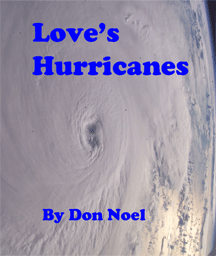In its first draft, my short story “Opportunities” ended with a cop lamenting that no one had reported a  man collapsed by a brook. One of the editors who turned the story down suggested it needed a stronger finish.
man collapsed by a brook. One of the editors who turned the story down suggested it needed a stronger finish.
I invented a better ending, sent it off, and bingo! It was accepted by MacQueen’s Quinterly.
In the same breath, MacQueen’s accepted my ultra-short “Man with a Riata”, a memory of a Paiute cowboy I rode with.
The two are back-to-back in the new edition: This link takes you to the shortie, and “Opportunities” is on the next page. Click ==> here
Death Valley, concisely
“We are aiming for an issue that joins written 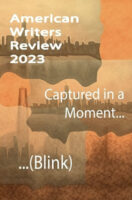 word and images in a tight, dramatic, concise form.”
word and images in a tight, dramatic, concise form.”
That was the theme of the latest contest by American Writer’s Review, one of the literary magazines published by a group of professional writers. And by “concise,” they meant at max 500 words.
I took my trusty Model A Ford back to Death Valley to imagine an encounter with the driver of a disabled convertible. They liked it; you can buy the 2023 edition at Amazon and flip through to page 75,
OR you can read it ==>right here
How Did Baseball Get in Here?
From time to time some literary magazine will suggest a new approach to writing a short story. One such note proposed beginning with an extended 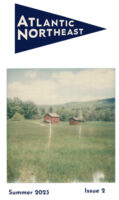 description of place, and then slowly developing why the protagonist is in that place and what he’s up to.
description of place, and then slowly developing why the protagonist is in that place and what he’s up to.
For reasons I can’t explain, I imagined a man parking outside a youth baseball stadium where he’d been coach until a tragic accident took his son and wife. Hardly the kind of topic I usually find, but I like the way it turned out, with a double-entendre title that suggested itself as I wrote the final paragraphs.
A young literary magazine called Atlantic Northeast liked it, and it’s out now. You can open it (free) ==>online and scroll to page 23
Or read it ==>right here.
Christmas is always in season
 WayWords, a literary magazine run by professional writers, invited stories dealing with seasons. I’d just finished a piece whose protagonist, a grandfather, wonders if a gathering snowstorm will deter his being picked up for a family Christmas dinner. I wondered if the editors would like snow for their July edition; they did. You can read it in print or Kindle at ==>>Amazon
WayWords, a literary magazine run by professional writers, invited stories dealing with seasons. I’d just finished a piece whose protagonist, a grandfather, wonders if a gathering snowstorm will deter his being picked up for a family Christmas dinner. I wondered if the editors would like snow for their July edition; they did. You can read it in print or Kindle at ==>>Amazon
Or can more easily read it at my blog, ==>>right here
Prizeworthy effort before the music
I don’t often write to a magazine’s prompt, but when Flora Fiction 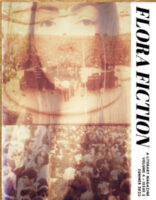 Literary (which had already published several of my pieces) announced a theme of “festivals,” maximum 1,000 words, I was fairly confident they’d like my recollection of picnicking at Tanglewood.
Literary (which had already published several of my pieces) announced a theme of “festivals,” maximum 1,000 words, I was fairly confident they’d like my recollection of picnicking at Tanglewood.
They did; it’s out now. You can buy the whole paperback (!!) ==>>here or at Amazon
or you can read my story ==>>right here.
A human side of newspapers’ decline
My short story “Buyout” was probably prompted by the steady atrophying of 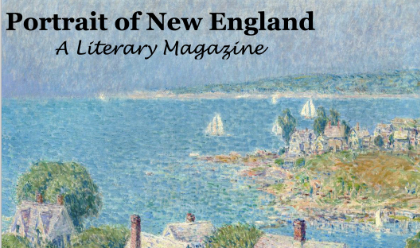 The Hartford Courant. It is a shadow of its former self, produced by a staff that is a fraction of the number who once put out the state’s dominant newspaper. It is not my story, although I borrowed a lot of my early experience at the competitor Hartford Times.
The Hartford Courant. It is a shadow of its former self, produced by a staff that is a fraction of the number who once put out the state’s dominant newspaper. It is not my story, although I borrowed a lot of my early experience at the competitor Hartford Times.
It’s out now in a small literary magazine called Portrait of New England.
You can download this issue at ==>>the magazine’s website and scroll down to page 57
Or you can (more easily) read it ==>>right here
Imagine a funny situation
The idea struck me as ripe for humor: Suppose a handsome, personable, younger-than-most man moved into a senior retirement community like mine, and suddenly began escorting a young blonde bombshell to his quarters? When asked, he might claim her as a granddaughter, but who would believe that?
like mine, and suddenly began escorting a young blonde bombshell to his quarters? When asked, he might claim her as a granddaughter, but who would believe that?
OpenDoor Magazine found it a good fit for its Summer ’23 issue on the theme of “envy”.
It’s out now. You can download the entire virtual issue ==>here, and scroll down to page 89,
Or read it ==>right here at my blog
The isolation of old age
I began what became “A Purpose of Words” when a friend mentioned having considered suicide in her childhood. I’d recently read several articles about loneliness and depression in communities of the elderly, and one older person I knew had taken his life.
I’d recently read several articles about loneliness and depression in communities of the elderly, and one older person I knew had taken his life.
It turned out to be hard writing; I re-worked it (and re-titled it!) more than once. I finally got it where I liked it – as did the editors of a Pennsylvania college literary magazine. You can read it there, at ===>River & South Review
or of course ===>here at my blog
A lakeshore carpeted with fish
Occasionally memory goes back to 1966-67, when the Alicia Patterson Foundation sent me with the family to study the governance of two great rivers that traversed both Communist and non-Communist nations — the Danube and the Mekong. Although my reports dealt with government action, there was time to marvel at how people lived — and in Cambodia, one unique way they fished.
study the governance of two great rivers that traversed both Communist and non-Communist nations — the Danube and the Mekong. Although my reports dealt with government action, there was time to marvel at how people lived — and in Cambodia, one unique way they fished.
Wanderlust Journal liked the account; you can read it ==>there
Variants of dawn
Most Seabury residents are determined to keep exercising 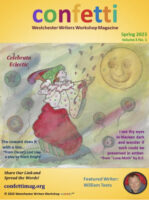 into old age, and if I step out at daybreak I’m sure to see some brisk walkers. If I watch for her, I can also see the lady who delivers newspapers making her rounds.
into old age, and if I step out at daybreak I’m sure to see some brisk walkers. If I watch for her, I can also see the lady who delivers newspapers making her rounds.
She must also see the walkers, I thought one day; suppose one of them literally started out at sunrise: Could she tell the time of year by where she crossed paths with him? An opportunity to wax eloquent about early morning sights and sounds..
The Westchester Writers Workshop liked it. It’s out in their magazine Confetti. You can read it ===>here





